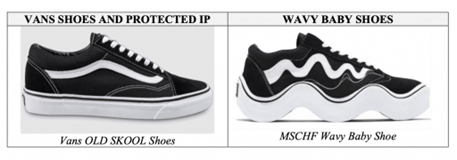Client Alert: SCOTUS Decides in Jack Daniel’s Properties Inc. v. VIP Products that Parody Products Can Constitute Trademark Infringement | Neal, Gerber & Eisenberg LLP
On June 8, 2023, in a unanimous decision, the Supreme Court held that parody products that mimic the trademarks and trade dress of recognized brands can constitute trademark infringement, subject to the standard test of whether consumers are likely to be confused. The Court decided that the Rogers test—a threshold test that courts have used to determine whether parody products are “expressive” enough for the First Amendment to bar infringement claims—does not apply when the parody matter is itself being used as a trademark to identify the source of the product. The Court similarly held that parody products are also not shielded from dilution claims.
The decision comes after nearly a decade of litigation. A dog toy manufacturer, VIP Products, first brought this suit against Jack Daniel’s in 2014 after the distillery sent it a cease-and-desist letter. The conflict centered on a dog toy that mimics the well-known shape and size of a bottle of Jack Daniel’s Old No. 7 Tennessee Whiskey. A label printed on the squeaky toy reads “Bad Spaniels” in a similar font to the Jack Daniel’s logo and replaces the words “Old No. 7 Tennessee Whiskey” with “The Old No. 2 on Your Tennessee Carpet.” Jack Daniel’s owns registered trademarks in the terms “Jack Daniel’s” and “Old No. 7,” as well as trade dress in its stylized label design and its distinctive bottle shape.
In determining whether the toy violated Jack Daniel’s trademark rights, the Justices wrestled with the question of whether a parody product is protectable speech or subject to Lanham Act restrictions. The Ninth Circuit had overturned the district court’s finding of infringement based on the widely followed Rogers test. In Rogers v. Grimaldi, 875 F.2d 994 (2d Cir. 1989), the Second Circuit outlined what has since been called a “gateway in any artistic way, the use is protected speech. This low bar has been the subject of controversy, with brand owners like Jack Daniel’s arguing that the Rogers test gives others carte blanche to infringe protected marks—and thereby create consumer confusion —so long as they can claim some element of parody or other “expressive” meaning.
While the Court remanded the case to determine whether the Bad Spaniels toy diluted Jack Daniel’s trademarks and trade dress or infringed them under the usual test of likelihood of confusion, the ruling will allow brand owners to properly bring Lanham Act claims against the parodic use of their trademarks as trademarks. Instead of assuming that a parody product meets the low Rogers bar of expressiveness and is therefore shielded from Lanham Act claims, courts must now first determine whether a parodic trademark is acting to identify the source of the product. If so, courts will not apply the Rogers test and will proceed to evaluate the infringement and dilution claims under the usual analysis.
The Second Circuit may soon demonstrate this new process as it resumes its consideration of a lawsuit brought by the shoe brand Vans, Inc. against the MSCHF art collective, which sold more than four thousand pairs of shoes using Vans’ registered trademarks and trade dress for the alleged purpose of offering commentary about “consumer culture.” Vans Inc., VF Outdoor, LLC, v. MSCHF Product Studio, Inc., Case No. 22-1006 (2d Cir. 2022). If Vans has proven that MSCHF has used Vans’ marks and/or trade dress as a source identifier, the Second Circuit will have to evaluate whether the purported parody shoes infringe or dilute Vans’ intellectual property by causing a likelihood that consumers will believe that the parody shoes are made or approved by Vans.







